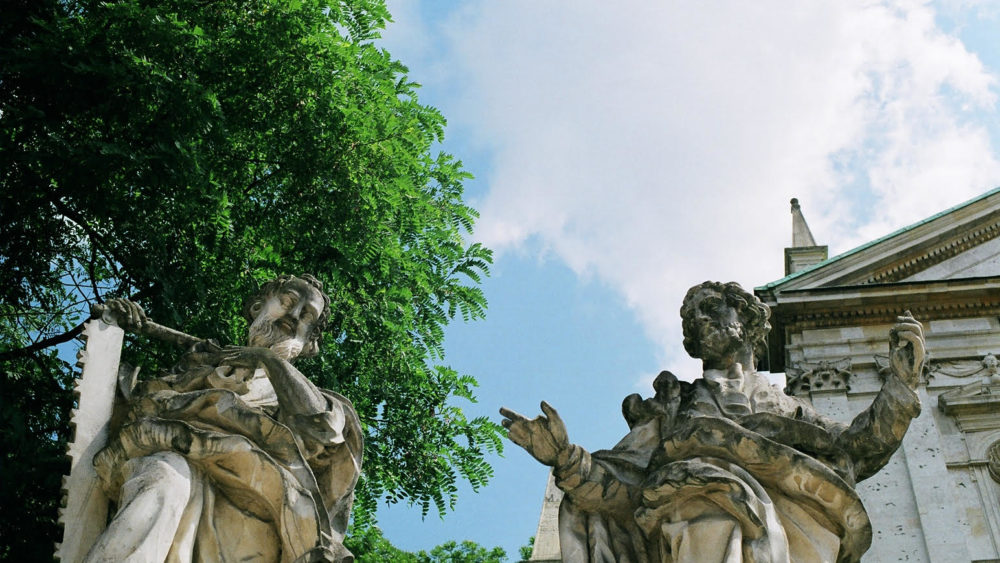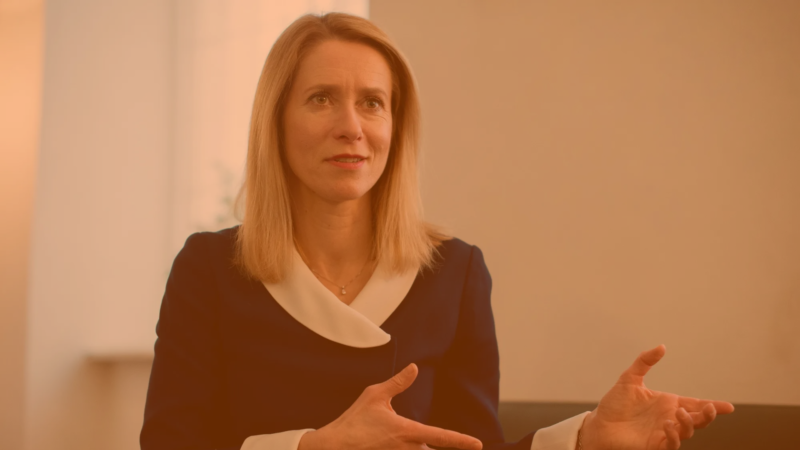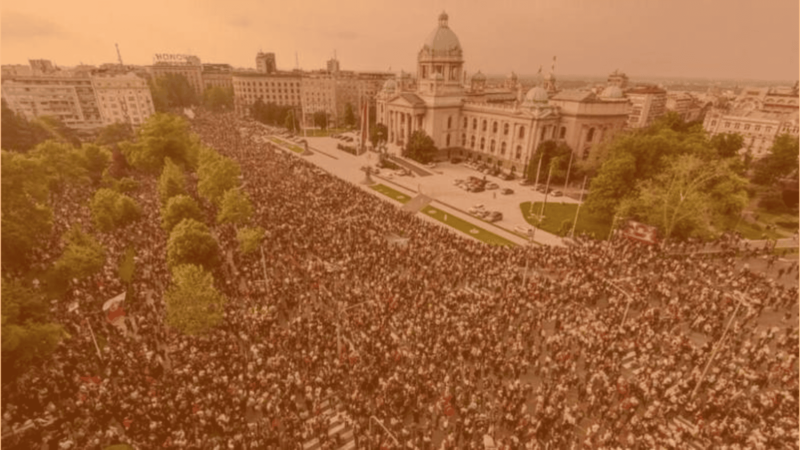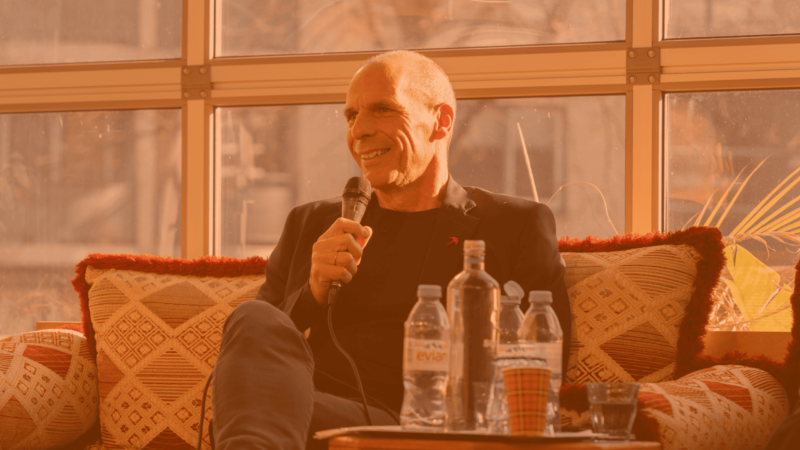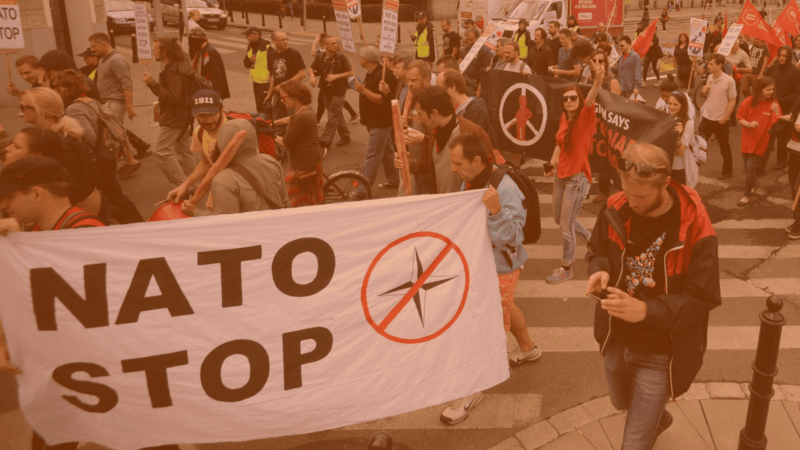The limits of earthly survival are the limits of good character.
PALERMO—Bumping into other people during the first weeks of lockdown felt a lot like meeting people in a hospital hallway. Everybody appeared slightly ungroomed, tired of doing nothing and looking to behave as aseptic — free from contagion — as possible. Still, nobody is to be touched or come close which is an irritating new feature of a life yet to apprehend. Speaking face to face, passing items from one hand to another, negotiating space in a supermarket aisle, taking the elevator or holding open a door—all awkward dances from an arm-length apart. At minimum.
Even though the possibility of contagion is real, we who meet on the street seem to still be visitors in this new scenario. Patients with COVID-19 in real hospitals are gasping for air, possibly lying on their bellies connected to a machine that breathes for them. It is not only the elderly or weak but, as voices of Italian doctors on the frontline have been telling us since the virus hit the Southern European country, also people in their 20s, 30s and 40s who require intensive care.
While infections and fatalities continue to rise daily—from three on 18 January to more than 285,145 at the time of writing—the measures now increasingly taken in overcrowded hospitals across various continents are those practised in times of war. Medical staff must decide whose lives are sensible to save as they face a lack of medical supplies to meet the soaring demand for personnel and equipment.
Meanwhile, the countrywide lockdown imposed by the Italian government on March 10 2020 and other governments thereafter, continued to be described as ‘draconian measures’ by news outlets all over the world. In the past month, the word has become journalists’ lazy favourite to illustrate the desperate but life-saving attempt of limiting contagion. Apart from suffering the total absence of eloquence, we — the reader — also suffer a severe loss of context. The example sentence to define the word draconian in Google’s dictionary is “the Nazis destroyed the independence of the press by a series of draconian laws” which is in itself a sensible statement, yet one wouldn’t say “the patient’s life was saved by a draconian operation on the open heart.”
The use of these words — by which we understand the world — is not a serendipitous mistake on repeat. It is a direct reflection of the current crisis of political leadership, which became the first and foremost victim of the Coronavirus. Leaders have not reacted fast enough. Often, economic reasoning has been put before people’s wellbeing. Subsequently, the severe actions taken in China and Italy have been understood as arbitrary, oppressive and harsh because they were compared against the long absence of measures across other countries in Europe and the US.
Varying degrees of inadequacy and utter unpreparedness have been reflected in the tardy responses of Western leaders: President Trump belittled the threat before erratically jumping from one unscientific solution to another — first hydroxychloroquine then simple bleach — in a desperate quest to reopen the economy; Boris Johnson first presented ‘herd-immunity’ without a back-up plan for an NHS that is on the brink of collapse on every regular weekday due to years of structural underfunding and continues to confuse the public with half-baked strategies; even chancellor Angela Merkel reacted rather late though decisively enough to direct Germany’s resources towards massively increasing testing capacities.
Like in a classical Greek tragedy, there is an unfortunate lack of desirable options when it comes to dealing with this global public health emergency.
No matter which route is taken, something will take a hit — whether it be the economy, the population or the leading party’s reputation. Unfortunately, this is exactly what leaders are supposed to do; taking tough decisions and navigating crises falls within the responsibility of a chancellor, president or leader.
In Poetics, Aristotle lays out the basic pillars of tragedy. Among them, pity aroused by unmerited misfortune, fear from seeing the misfortune of a man like ourselves, and character through which moral purpose can be expressed. “Character is that which reveals moral purpose, showing what kind of things a man chooses or avoids,” he writes.
While the pandemic aroused pity and fear, the display of good character with a moral quality has been rather rare. Under the premise, that the soul is divided in rational and non-rational, Aristotle defines a good or virtuous character as the skilful balance between the two:
“Anyone can get angry — that is easy — or give or spend money; but to do this to the right person, to the right extent, at the right time, with the right aim, and in the right way, that is not for everyone, nor is it easy. That is why goodness is praiseworthy and fine.”
For the Greek moralists, the moral wasn’t a chastising duty or obligation but an opportunity to flourish and live well.
The hesitant reaction of many leaders, stemming from failing to prioritise between saving lives or the economy, is in and of itself immoral; money doesn’t make for a great purpose when the consequence is death. We may not dare to expect morality but resolute action, factual communication and swift reaction must be demanded. Instead, lies, ignorance, and irresponsibility have allowed the virus to claim thousands of lives up until now, and as Boris Johnson reassured prolifically early on, it will cost us many more.
It is not just the virus that is killing us, it is our inability to deal with it.
Beyond leadership, most health systems in Europe are ill-equipped to respond to this crisis, missing the necessary number of beds or ventilators, medical personnel and protective gear. As similar problems arise across the world, it becomes clear that capitalism is economically unfit for purpose.
Wealth extraction has been prioritised over wealth creation. As Brené Brown explains in Dare To Lead, political and personal priorities are based upon values such as kindness, compassion, and accountability. To a certain degree, the inadequate leaders we have seen emerge in the second decade of the most unpredictable millennium in human history have been chosen by us, the citizens. This says something about the fear and uncertainty most of us are living with and the enormous impact it has on our values. Uncontested fear leads to isolation, which voluntarily gives away the power of connection and alliance with others, and favours binary solutions or unilateral myths of strength.
Instead of building literal or metaphorical walls, leaders ought to act beyond those for no arbitrary lines will ever truly separate us.
We share a planetary sphere. It brings to mind one of Gillian Wearing’s photographs from the series Signs that say what you want them to say and not Signs that say what someone else wants you to say (1992-1993). In it, one of London’s passers-by participants, a middle-aged man, holds up a self-written sign saying “Everything in life is connected. The point is to know it and understand it.” The reason is not altruism but connection — we and the other are inseparable. This includes non-human species if there were any doubts left. Long after Donna Haraway, Timothy Morton and Anna Tsing have told us so we begin to understand what this means.
From our confinement in Palermo, Lorenzo Marsili wrote about the transformative possibility of this breakdown, the biggest disruptive event since WWII. By now, most of us have moved past the state of emergency and realised that this crisis will stay with us. For months, the global population has been confined to their homes (those who are lucky enough have them). Forced to sit with the desperation within and without us, we excavate faded ideals and re-establish what we hold important.
In conversations with friends and discussions witnessed on channels like DiEMTV, old bonds are revived and new alliances are formed around shared values. Though there is a lack of optimism, there is no lack of hope. We may not have realised, but we are already living in the future.
Photograph © Izabela Anna Moren.
Do you want to be informed of DiEM25's actions? Sign up here





